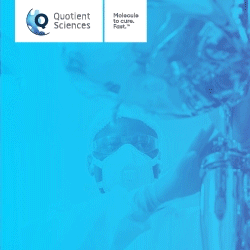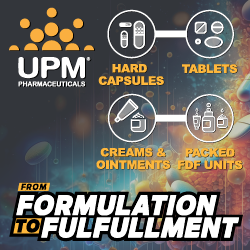BioAegis Therapeutics Enrolls First Patient in Phase 2 Clinical Trial of Immune Regulator for Treatment of Acute Respiratory Distress Syndrome
BioAegis Therapeutics recently announced the first patient has been enrolled in the company’s Phase 2 study of rhu-pGSN for the treatment of Acute Respiratory Distress Syndrome (ARDS) (NCT05947955).
The randomized, double-blind, placebo-controlled proof-of-concept trial of rhu-pGSN added to standard of care will evaluate the efficacy (survival without organ failure on Day 28) of six doses of rhu-pGSN administered intravenously to hospitalized moderate-to-severe ARDS subjects (P/F ratio ≤150) caused by infection. It will also measure the safety and tolerability of treatment along with secondary outcomes.
Seventy-five sites have been selected in the US, Canada, UK and the EU, including Belgium, France, Italy, Germany, Netherlands, Spain and others to conduct the study. Enrollment is targeted for 600 subjects.
This project has been supported in whole or in part with federal funds from the US Department of Health and Human Services; Administration for Strategic Preparedness and Response; Biomedical Advanced Research and Development Authority (BARDA), under contract number 75A50123C00067.
ARDS is a condition that can develop as a severe complication of sepsis, trauma, pneumonia or other infectious diseases, resulting in life-threatening lung injury with fluid leakage into the lungs. Breathing becomes difficult, and patients require oxygen, mechanical ventilation and extensive critical care resources, placing a significant burden on the healthcare system.
Even with aggressive medical management, a substantial number of patients do not survive, and those who do may suffer from long-term complications, including impaired lung function and reduced quality of life. In the U.S. alone, ARDS affects over 500,000 patients per year, or roughly 10% of all ICU admissions. The mortality rate for ARDS is approximately 40%. The lack of effective therapies to treat ARDS and its associated high mortality driven by excess inflammation underscores the urgent need for innovative therapy in this field.
Plasma gelsolin holds immense promise as a therapeutic intervention for ARDS due to its multifaceted mechanism of action. Gelsolin has demonstrated the ability to:
- Modulate the activation of the NLRP3 inflammasome and generation of IL-1β-containing microparticles.
- Facilitate uptake and killing of microbial pathogens by macrophages.
- Bind to and remove harmful inflammatory mediators, including toxic free actin.
- Regulate macrophage phenotype to modulate inflammation.
Gelsolin is a naturally occurring human protein found in the bloodstream, which is depleted by the inflammatory process. Supplementation with the recombinant gelsolin protein holds promise to address the overzealous inflammatory response associated with ARDS.
“We are excited to have begun enrollment in this important study. Our commitment is to save lives by addressing the challenges of this complex disease, which is also a major drain on healthcare resources across the globe,” stated Susan Levinson, PhD, Chief Executive Officer of BioAegis.
BioAegis Therapeutics Inc. is a NJ-based clinical-stage, private company whose mission is to capitalize on a key regulatory component of the body’s immune system, plasma gelsolin, to prevent adverse outcomes in diseases driven by inflammation. BioAegis’ platform is built upon the recombinant form of plasma gelsolin, a highly conserved abundant human protein in healthy individuals. Its role is to keep inflammation localized to the site of injury and to boost the body’s ability to clear pathogens. Normal levels of pGSN are depleted by diverse inflammatory conditions. Restoring gelsolin levels with the human recombinant form, rhu-pGSN, helps immune cells fight infection and controls inflammation so it does not spread and cause organ damage. Rhu-pGSN is a non-antibiotic, host-directed, non-immunosuppressive treatment for inflammation due to both infectious and non-infectious causes.
BioAegis has the exclusive license to broad, worldwide intellectual property through Harvard-Brigham and Women’s Hospital. It holds over 40 patents issued for coverage of inflammatory disease, infection, renal failure, and neurologic disease. BioAegis will also have US biologics exclusivity and has recently filed new IP in areas of unmet need.
Total Page Views: 1136












